Zapisz się na dzień otwarty
Classes I-III
Jesteśmy szkołami „Uczącymi Się”. Honorowy tytuł przyznawany placówkom skoncentrowanym na wdrażaniu ocenia kształtującego oraz podnoszeniu jakości nauczania i efektywności uczenia się wszystkich uczniów i uczennic – otrzymaliśmy w czerwcu 2022 roku.
Co to oznacza w praktyce?
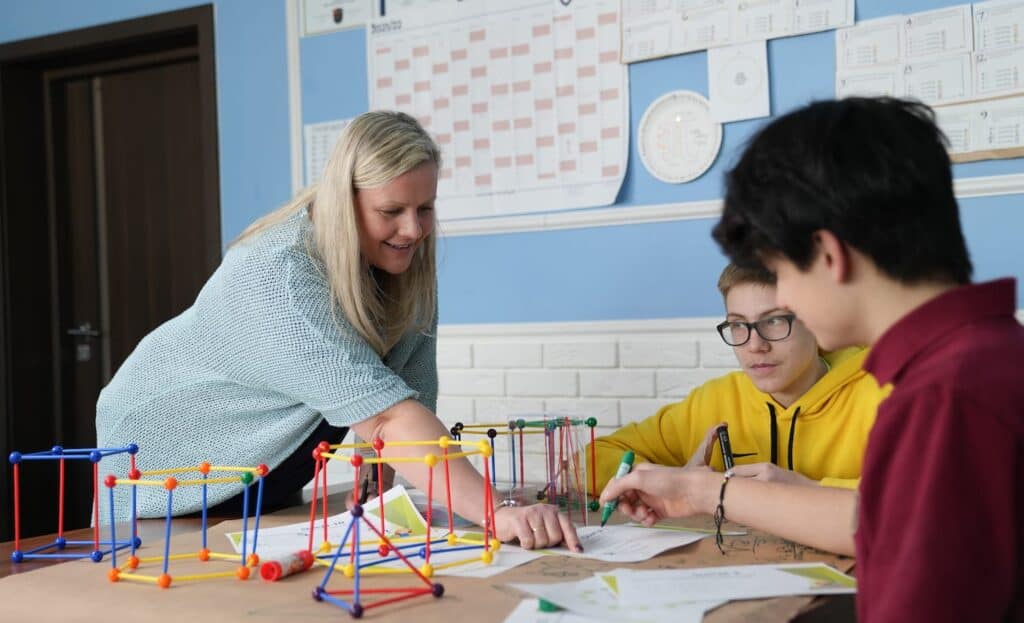
In practice, students receive fewer grades, and more often feedback on what they did well, what should be improved and how, in which direction they should develop further. They know what they are learning and why, they are informed what will be assessed.
We create an atmosphere conducive to learning, the pillars of which are: students' self-confidence, commitment, independence, awareness of their own strengths, responsibility and cooperation.
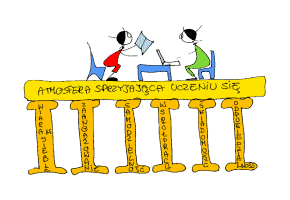
We define the purpose of the lesson in the language of the student, and after its completion, we jointly check the degree of its implementation. We know that a student who is aware of what he is going to and what and why has been planned has a much higher motivation to learn and learn, and, consequently, a greater chance of achieving educational success.
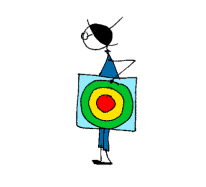
We provide success criteria, i.e. detailed criteria that will prove that the goal has been achieved. NaCoBeZu - which is what we will pay attention to - students also receive before any form of checking their knowledge, and also before homework.
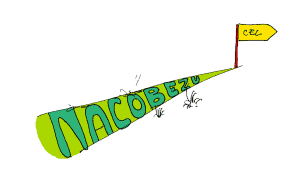
We know that everyone needs feedback on their achievements and evaluation of their work. Grades are not useful information for the student. Assessment of the student's work, which will be used by him in the learning process, is one that will show him / her: what he did well, what should be improved, how should be improved,
in what direction should the student develop further.
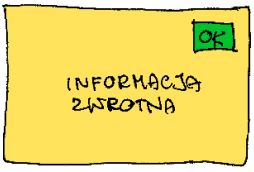
We know that everyone needs feedback on their achievements and evaluation of their work. Grades are not useful information for the student. Assessment of the student's work, which will be used by him in the learning process, is one that will show him / her: what he did well, what should be improved, how should be improved,
in what direction should the student develop further.
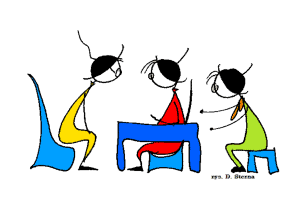
Classes I-III
Assessmentshaping
We are OK - We judge by supporting
The pillars of Gaudeamus schools are: students' faith in themselves, their commitment, independence, awareness of their own strengths as well as responsibility and cooperation. In order to develop these values, we conduct Learning Assessment (OK) in our schools. Our teachers build a partnership teacher-student relationship, which increases the student's motivation and commitment to the learning process. They ask questions that make them think, involve students in the assessment process, give them the right to make mistakes, and do not hold them accountable for what they do not know yet.
In practice, students receive fewer grades, and more often feedback on what they did well, what should be improved and how, in which direction they should develop further. They know what they are learning and why, they are informed what will be assessed.
1
We create an atmosphere conducive to learning, the pillars of which are: students' self-confidence, commitment, independence, awareness of their own strengths, responsibility and cooperation.

2
We define the purpose of the lesson in the language of the student, and after its completion, we jointly check the degree of its implementation. We know that a student who is aware of what he is going to and what and why has been planned has a much higher motivation to learn and learn, and, consequently, a greater chance of achieving educational success.

3
We provide success criteria, i.e. detailed criteria that will prove that the goal has been achieved. NaCoBeZu - which is what we will pay attention to - students also receive before any form of checking their knowledge, and also before homework.

4
We know that everyone needs feedback on their achievements and evaluation of their work. Grades are not useful information for the student. Assessment of the student's work, which will be used by him in the learning process, is one that will show him / her: what he did well, what should be improved, how should be improved,
in what direction should the student develop further.

5
The learning process is a social process. Man learns best with others. That is why we organize the educational process so that students work in pairs or groups. Thanks to this, children learn from each other, deepening their knowledge and the ability to cooperate.

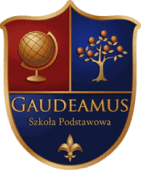
contact us
Bemowo Headmaster
Józefosław Headmistress
Gaudeamus
Edukacja Domowa
Subscribe to the newsletter
Our facilities

Students of the Józefosław school
In the national ranking, they scored on average:

Język polski 92% punktów (średni wynik w Polsce: 66%, średni wynik w Warszawie: 72%)
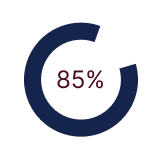
Matematyka 85% punktów (średni wynik w Polsce: 53%, średni wynik w Warszawie: 67%)

Język angielski 97% punktów (średni wynik w Polsce: 66%, średni wynik w Warszawie: 81%)
Students of the Bemowo school
In the national ranking, they scored on average:

Język polski 76% punktów (średni wynik w Polsce: 66%, średni wynik w Warszawie: 74%)

Matematyka 84% punktów (średni wynik w Polsce: 53%, średni wynik w Warszawie: 67%)

Język angielski 96% punktów (średni wynik w Polsce: 66%, średni wynik w Warszawie: 81%)
Students of the Bemowo school
In the national ranking, they scored on average:

Polish 67% points (average score in Poland: 60%, average score in Warsaw: 64%)

Mathematics 73% points (average score in Poland: 57%, average score in Warsaw: 62%)

English 90% points (average score in Poland: 67%, average score in Warsaw: 72%)

Polish 73% points (average score in Poland: 60%, average score in Warsaw: 64%)

Mathematics 93% points (average score in Poland: 57%, average score in Warsaw: 62%)

English 97% points (average score in Poland: 67%, average score in Warsaw: 72%)